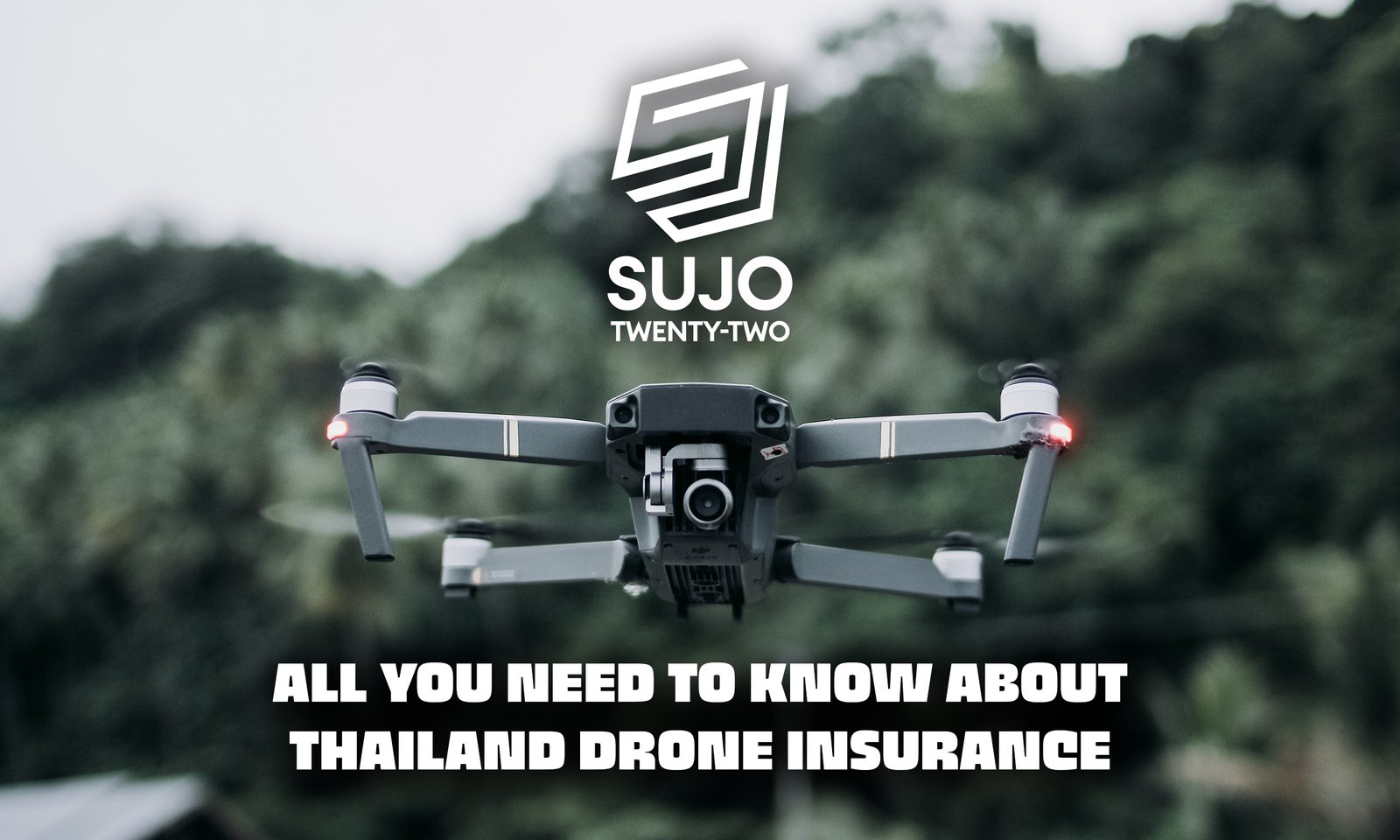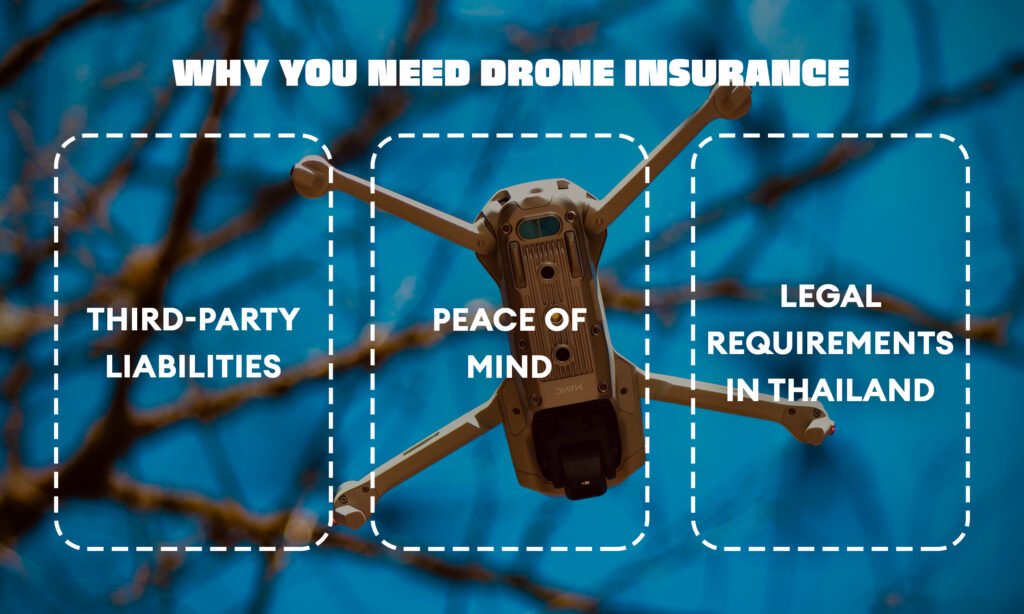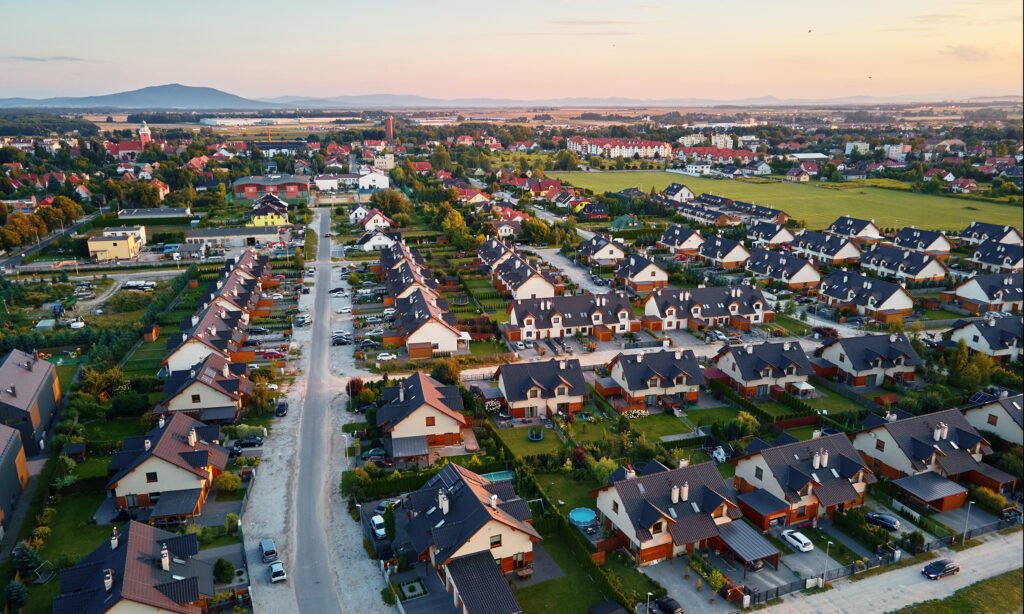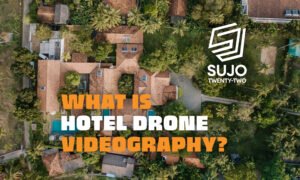
Did you know that you need Thailand drone insurance before flying a remotely piloted aircraft for commercial use in the country? Not only that but depending on the drone weight and whether it is a hobby or commercial drone, many regulations need to be adhered to while operating a drone. Drone registration and pilot registration have to be done as well. Sounds complicated?
No need to worry. Whether you need a drone insurance policy for your own drone or whether you’re hiring a professional drone pilot for an expensive video shoot on your property, we’ll guide you through the full process. You’ll learn all about drone registration, how to get drone liability insurance, and why it’s important to have drone insurance coverage for yourself or any drone pilots you hire.
What You Need to Do Before Flying a Drone in Thailand
Whether you’re planning to fly a hobby or commercial drone, or hiring a professional video production team for some drone photography at your luxury resort, you need to be aware of the following important rules. These regulations cover drone registration, pilot licensing, the legal requirement for obtaining drone liability insurance, and laws that govern what you can and cannot do while flying a remotely piloted aircraft.
Registration of Drone with the National Broadcasting Telecommunication Commission (NBTC)
If you’re using drones weighing more than 2kg or drones fitted with a camera or recording device, you have to register them with the NBTC. Naturally, a drone with a professional camera attached will usually fall into this category. The NBTC is involved due to radio frequencies used to control remotely piloted aircraft.
You will need to visit the NBTC office and submit the completed Radio Equipment Registration form and the Owner’s Declaration of Conformity form. You will also need personal identification documents (national identity card, passport, visa, etc), proof of address, and photos of the drone. These photos must show the model, brand, serial number of the drone, serial number of the controller or transmitter, and any other devices such as camera attachments.
If you’re caught using an unregistered drone, it could lead to fines of up to 100,000 baht, a prison sentence of up to five years, or both. So make sure drone registration has been completed before flying a drone.
If you’re a foreign drone owner passing through transit, there is no need to register. However, if you’re planning to use your drone while you visit Thailand, then it’s best to get it registered online at the NBTC sign-up webpage. You can visit the NBTC office in person as well. This approval will be valid for the duration of your visa to Thailand.
Get a Drone Insurance Policy
All drones used for commercial purposes have to be operated by registered drone pilots according to Thailand’s national aviation authority which is the CAAT. However, before this can be done, you will need to get your drone insurance policy since this is needed to complete your CAAT application.
Drone insurance with minimum coverage has to include third-party liability insurance that covers damages to the body, life, and property. The minimum sum insured has to be no less than one million baht. Remember that if you’re hiring a video production company to fly a drone over your property, the insurance policy will apply to you in case of any accidents. There are additional drone insurance policies that cover damages caused to the drone itself. We’ll come back to drone insurance coverage later.
Registration of Drone Pilot with the Civil Aviation Authority of Thailand (CAAT)
After obtaining your drone insurance policy, it’s time to obtain clearance from the Civil Aviation Authority of Thailand. CAAT registration has to be obtained for drone pilots that operate unmanned aerial vehicles (UAVs) that have cameras attached or are used for commercial purposes.
If you’re hiring a video production to capture aerial footage, it is highly recommended you check if these companies are certified with a valid license before running into any legal issues. Violating CAAT regulations can mean a prison sentence of one year or a fine of up to 40,000 baht or both.
Drone pilots also need to be above 20 years of age, not considered a national security threat, and not have been charged with a crime under narcotics or customs laws of Thailand. Applicants must fill out the specific form indicating clearly the purpose of using the drone, and submit personal identification documents, proof of address, and photos of the drone. These are the same photos previously submitted to the NBTC. A copy of the drone insurance policy has to be submitted as well.
The CAAT registration will take about 15 working days to process. If your drone pilot is coming from overseas to Thailand, it is highly recommended they obtain drone insurance, and apply for the CAAT clearance and the NBTC registration at least a month before they arrive. This will ensure your planned video production will go sm
Knowledge of Drone Regulations and Safety Precautions
No matter where the drone is being flown in Thailand, the drone registration with NBTC, the license from CAAT, and the drone insurance documents need to be at hand with the owner and/or its operator. Apart from this, there is a list of regulations that drone pilots need to comply with before and during a flight.
Some of the most important rules are obviously applicable while flying but some require compliance before taking off. A pilot has to ensure the drone is in good condition to fly, with adequate space for takeoff, and clearance from the land owner which could be you depending on who is operating the drone. There has to be an emergency plan with medical care ready in case of an accident or if the pilot were to lose control. Pilots also need to be aware of restricted areas such as national parks and hospitals where drones are not allowed.
During the flight, a pilot has to maintain a visual line of sight at all times, and not fly higher than 90 meters. They must also take care not to fly within 09 km of any airport or temporary airfield. There are further regulations about the proximity to buildings, flying over crowded areas, and privacy concerns. If you’re a hotel owner located next to a national park or crowded tourist attraction, you’ll need to check all of this before going ahead with your aerial video production.
The most important thing is not to fly the drone in a dangerous manner that can cause you to lose control of the drone, and cause harm to a person, or property. Check out the drone regulations listed on the CAAT website or read Thailand Drone Laws: Are They Legal? for more detailed information on the subject.

Why You Need a Drone Insurance Policy
Drone insurance is absolutely essential if you own and pilot a drone for commercial purposes like film, television, or video production. It’s worth investing in for several reasons. No matter how well the drone is maintained or how closely the safety precautions are followed, accidents can happen during a flight.
Drones used for commercial purposes can be heavy and loaded with expensive camera equipment. If it crashes, damage may be caused to various parties including the owner and operator who are nearby. The loss or damage of the drone itself may be very costly. The drone may also cause harm to third parties, the landowner, or any nearby property.
Third-Party Damage
If you’re flying at your personal residence and crash the drone into your own home, a homeowner policy may be able to cover damages. However, if the drone is being flown for commercial reasons, it will be flown at the site or property of the client that hires the drone. Fortunately, a drone insurance policy provided by any insurance company in Thailand will cover damage to third parties. By getting a policy, you will be covered in the event of loss of life, bodily harm, or property damage.
If you’re a luxury hotel owner hiring a company to do aerial videography of your property, then you’re essentially the third party here. By ensuring the video production team has obtained drone insurance coverage ahead of time, you will be covered for any eventualities.
Peace of Mind
Depending on the drone insurance policy, it can cover both the damage to the drone, as well as third parties. With the drone insured, you don’t have to worry about the financial risk of operating an expensive drone built to carry professional video gear. You’ll have peace of mind and be able to focus on what’s important: the flying.
If you’re visiting Thailand for a video production project or just there on vacation, your travel insurance might not provide sufficient coverage. It might be worth investing in a complete drone insurance policy if you’re planning on flying the drone, even if it’s just to record footage for your Instagram.
Legal Requirements
As mentioned earlier, drone insurance is a legal requirement in Thailand to apply for a license with the CAAT. This depends on the type of drone and its purpose. If the drone weight exceeds 2kg or the drone is fitted with a camera, or the drone is used for commercial purposes, it has to be insured and registered.

What You Need to Know About Drone Insurance
Here’s what you need to know about getting drone insurance.
Drone Insurance Coverage
Depending on the policy you get, it can provide coverage for both the damage caused to the drone as well as to third parties. You will have the option of selecting the amount of coverage for the loss or damage to your drone. This could be selected based on the model of the drone and how expensive it is. The third-party liability has to be a minimum of one million baht and covers loss of life, disability, injury, and property damage. It can even include bail in case of criminal charges.
The annual policy premium will usually cost less than 2,000 baht for third-party coverage, making drone insurance quite affordable. Damages to the drone can be covered by up to 70,000 baht with a policy that has a premium of about 6,000 baht. This can also include deductibles although there are none available for liability claims. For more information on coverage and claims, you should visit an insurance company’s webpage and browse its offerings.
Applying for Drone Insurance
Applying for drone insurance is very straightforward. You need to provide your personal identification documents, and details about your drone. This includes the brand, model, serial number, and weight of the drone. Once obtained, your drone insurance policy document will display all the details. This document must be available along with your NBTC and CAAT clearances while operating the drone should the relevant authorities request to see them.

Always Check Insurance Before Hiring a Professional Drone Operator for a Video Production

It goes without saying that if you’re planning to hire a video production team to take stunning aerial footage over your property, you should request to verify their registration documents and drone insurance policy before handing them your project. Doing so will ensure you as the property owner will be covered from any potential damages that might result from an accident. If you’re managing a five-star hotel, it becomes even more important to ensure the safety of your guests.
If you’re on the lookout for a professional video production partner that is licensed to operate UAVs, has Thailand drone insurance coverage, and has years of experience in the tourism and hospitality industry, then look no further than Sujo Twenty-Two!
If you wish to learn more about professional video productions, and how they can help market your hotel with a bit of cinematic flair using drone technology, read What Is Hotel Drone Videography?
FAQs
According to Thailand drone laws, drone liability insurance must be obtained to operate any drone that weighs more than 2kg, is equipped with a camera, or is used for commercial purposes.
The basic drone insurance policy in Thailand will include damages caused to third parties such as bodily injury, loss of life, and property damage for a minimum sum of one million baht. In addition to this, the loss or damage to the drone itself can be covered as well.
Yes. A basic drone insurance policy must be obtained first before applying for a license to operate it from the Civil Aviation Authority of Thailand (CAAT).



